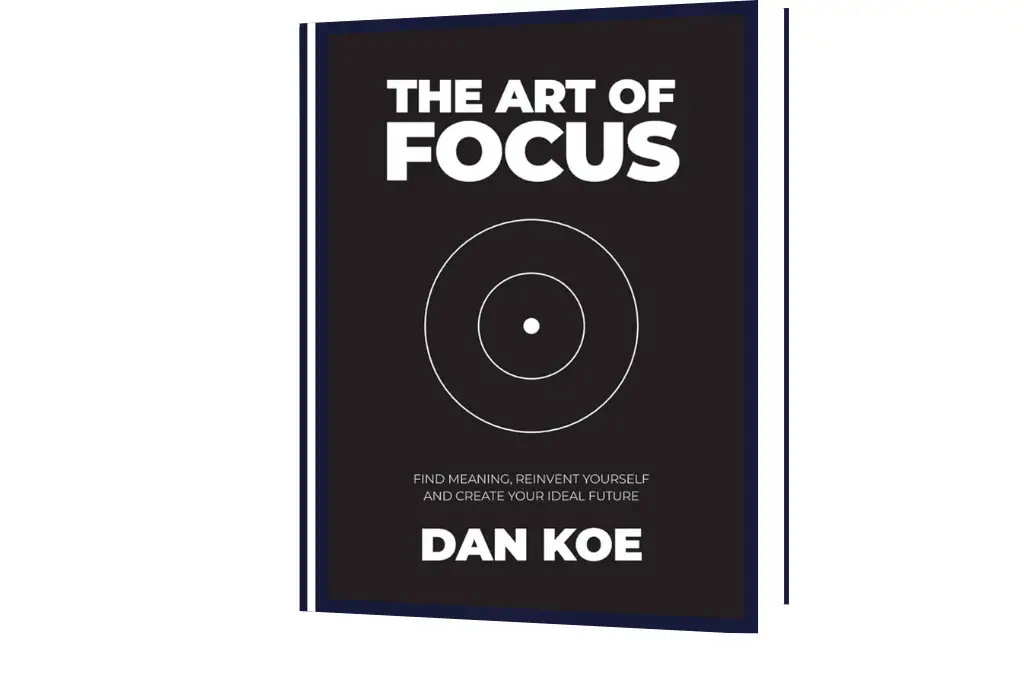Introduction
In a world brimming with distractions and chaos, The Art of Focus: Find Meaning, Reinvent Yourself & Create Your Ideal Future offers a transformative approach to developing sustained focus, clarity, and purpose. The book presents a holistic framework for honing the skill of focus, allowing individuals to align their actions with their highest aspirations. It emphasizes the importance of creating a meaningful life by learning to focus, finding purpose, and reinventing oneself in pursuit of personal and professional growth.
This summary highlights the book’s key concepts, practical advice, and actionable strategies that can help anyone overcome distractions, tap into their full potential, and create an ideal future.
Chapter 1: Understanding the Power of Focus
The first chapter establishes the foundational importance of focus. Focus, according to the author, is the gateway to achievement, growth, and success in all areas of life. It’s not merely about concentration but about deliberate, sustained attention to what truly matters. The modern world, however, is designed to pull attention in a thousand different directions. Social media, technology, and external pressures create a noisy environment that makes it difficult to focus. To combat this, the book encourages readers to develop an awareness of the distractions around them and take control of their mental energy.
Focus is presented not only as a skill but as a life-altering tool that can be cultivated and refined. By practicing mindfulness, setting clear intentions, and committing to disciplined effort, individuals can unlock their full potential.
Chapter 2: Finding Meaning in Your Life
One of the core messages of the book is that focus is most powerful when it’s directed toward something meaningful. Without a sense of purpose, even the sharpest focus will feel empty. This chapter encourages readers to ask themselves what truly matters to them, what brings them joy, and what they want to contribute to the world. Finding meaning is not about achieving conventional success, but about discovering alignment with one’s deeper values and passions.
The book introduces several methods for identifying personal meaning, such as journaling, meditation, and deep self-reflection. It emphasizes that meaning can be found in all aspects of life – from relationships and career to personal growth and creativity. When people find meaning, they are naturally motivated to stay focused on their goals.
Chapter 3: The Science of Focus
To effectively focus, it’s important to understand how the brain works. This chapter breaks down the neurological and psychological underpinnings of focus. Research shows that the brain has a limited capacity for attention, and when it is constantly overloaded, it becomes fatigued and less effective. By understanding the science behind mental energy, readers learn to manage their attention in a way that maximizes productivity.
The chapter provides techniques for minimizing cognitive overload, including creating clear mental boundaries, prioritizing tasks, and reducing multitasking. It also explains the concept of “deep work,” a term popularized by author Cal Newport, which refers to uninterrupted, concentrated periods of focus on cognitively demanding tasks.
Chapter 4: Overcoming Distractions
In this chapter, the book tackles one of the most pressing challenges to focus – distractions. In today’s digital age, distractions are everywhere, whether they are in the form of phone notifications, social media, or internal distractions like negative thoughts or anxieties. The author presents strategies to eliminate distractions and reclaim focus.
One of the key strategies is creating an optimal work environment. This involves decluttering the physical and digital spaces in which one works, setting boundaries with others, and establishing routines that promote concentration. The book also explores the concept of “batching” tasks – grouping similar tasks together to minimize distractions that arise from constantly switching between activities.
Another strategy for overcoming distractions is mindfulness. The book encourages readers to cultivate present-moment awareness, which enhances the ability to stay focused on the task at hand. This can be done through meditation, deep breathing exercises, and practicing gratitude, all of which improve mental clarity and reduce the tendency to become distracted.
Chapter 5: Reinventing Yourself
This chapter dives into the concept of self-reinvention. Over time, people may find themselves stuck in patterns that limit their growth or no longer align with their aspirations. Reinventing yourself involves letting go of outdated beliefs and habits that no longer serve your higher purpose. It requires a willingness to explore new possibilities, take risks, and embrace change.
The process of reinvention is framed as both a personal and professional journey. The book offers strategies for self-reflection and identifying areas in life that need transformation. It also provides practical steps for taking action, such as setting new goals, acquiring new skills, and developing a growth mindset. The author stresses the importance of patience and self-compassion during the reinvention process, as change can be uncomfortable but ultimately rewarding.
Chapter 6: Setting and Achieving Goals
Having clarity of purpose and meaning is important, but without action, nothing can be achieved. In this chapter, the book delves into goal-setting as an essential tool for creating your ideal future. The author presents the SMART framework (Specific, Measurable, Achievable, Relevant, Time-bound) as an effective way to set clear, actionable goals.
The chapter also emphasizes the importance of breaking goals down into smaller, manageable tasks. This approach helps to maintain focus and avoid overwhelm. Additionally, the book stresses the role of persistence and resilience in achieving long-term goals. It’s not enough to set goals – one must also have the discipline to stay focused on them despite obstacles.
Another key concept introduced in this chapter is the idea of “micro-goals.” These are small, daily actions that accumulate over time to bring about significant progress. By consistently taking small steps, individuals build momentum, which fuels further progress and helps maintain focus.
Chapter 7: Mastering Focus Through Habits
In this chapter, the author explains that the key to sustained focus lies in building powerful habits. Habits shape our lives in subtle yet profound ways. Positive habits, such as morning routines, exercise, and daily planning, foster discipline and help maintain focus. Negative habits, on the other hand, deplete mental energy and derail progress.
The book offers a step-by-step guide for building new habits that support focus. This includes making habits attractive, starting small, and reinforcing them through positive rewards. The author also explains how to break bad habits by identifying triggers, replacing them with healthier alternatives, and gradually reducing reliance on the old habit.
Through the lens of neuroscience, the book explains how habits are formed and how the brain’s reward system plays a crucial role in habit formation. It also discusses the importance of consistency in habit-building. By sticking with small changes over time, new habits become ingrained and require less conscious effort, freeing up more mental energy for other important pursuits.
Chapter 8: Cultivating Emotional Resilience
Focus is not only about mental discipline but also emotional resilience. In this chapter, the book explores how emotions can either hinder or enhance focus. Emotions like fear, anxiety, and self-doubt can pull attention away from important tasks, while positive emotions like passion and confidence enhance focus.
The author offers tools for cultivating emotional resilience, including mindfulness practices, reframing negative thoughts, and developing emotional intelligence. By becoming aware of their emotional triggers, individuals can learn to manage their reactions and stay focused on their goals, even in the face of challenges.
The chapter also discusses the importance of self-compassion. When individuals are too hard on themselves, they become overwhelmed and lose their ability to focus. The book emphasizes that treating oneself with kindness, especially in times of failure or setbacks, is crucial for maintaining focus and motivation.
Chapter 9: The Role of Reflection in Focus
In the final chapter, the book highlights the role of reflection in maintaining and enhancing focus. Reflection allows individuals to step back, assess their progress, and adjust their strategies. Without regular reflection, it’s easy to become stuck in unproductive routines or lose sight of one’s purpose.
The author introduces several methods of reflection, including journaling, regular check-ins with goals, and seeking feedback from trusted mentors or peers. The book also discusses the importance of celebrating small victories along the way, which reinforces positive habits and boosts morale.
By incorporating regular reflection into one’s life, individuals can remain on track, make adjustments as needed, and continue to focus on what truly matters. Reflection ensures that focus is aligned with long-term goals and purpose, preventing distractions from steering individuals off course.
Conclusion
The Art of Focus: Find Meaning, Reinvent Yourself & Create Your Ideal Future is a comprehensive guide to cultivating the focus necessary to achieve meaningful success. By understanding the power of focus, finding personal meaning, overcoming distractions, and developing positive habits, individuals can create a life that aligns with their true values and goals.
Throughout the book, the author provides a blend of practical advice, psychological insights, and actionable strategies. The central message is clear: focus is the key to unlocking one’s potential, and through sustained effort and self-discipline, anyone can reinvent themselves and create their ideal future. By embracing these principles, readers are empowered to take control of their lives, pursue their passions, and achieve lasting success.







